Can an Insurance Company Deny a Claim?
It’s not uncommon for an accident victim to feel completely blindsided when their insurance company refuses to pay out. The shock of a denied insurance claim can make an already stressful situation worse, regardless of if you’ve been injured in an auto accident, are filing a disability claim, or are dealing with property damage.
Insurance companies in Ontario are under financial pressure, as, according to Statistics Canada, claims ratios have been climbing steadily, peaking at over 90% in late 2024. With rising vehicle prices, parts shortages, and more frequent collisions, there are many economic reasons why insurers might limit payouts.
At McNally Gervan LLP, we help people challenge unfair denials, and navigate the claims process to understand what their auto insurance and other insurance policies really cover. If your claim is denied, you may still have legal options.
Understanding Insurance Claim Denial
Policy exclusions apply even if you have coverage
One of the first things any claims adjuster looks at is whether the incident is covered under the policy at all. Every insurance contract contains exclusions, specific situations where the insurance company won’t pay, and these exclusions can include accidents involving unlicensed drivers, injuries sustained while using the insured vehicle for prohibited activities, or damage that falls under a common exclusions clause.
If an accident occurs under a specifically excluded circumstance, the insurer can legally deny coverage. Unfortunately, many people are unaware of these limitations until they file a claim and get a denial letter. That’s why reviewing your policy with a licensed insurance professional to better understand your insurance coverage before an accident occurs is just as important as knowing what to do after.
Delayed reporting can hurt your claim
When you file a claim, timing matters. Most auto insurance companies require that you report an accident promptly, often within seven days to insurance adjusters the ability to investigate while witness statements, police reports, and physical evidence are still accessible.
If you wait too long, your insurer may argue that your delay prevented them from assessing the claim fairly. That argument can become the basis for a denied claim. It’s important to comply with your auto insurance policy’s reporting requirements even when you think the damage or injury is minor. If the insurance claim ends up being more serious than you expected, your delay may be used against you.
Medical documentation must be complete
A claim involving personal injury requires proper medical evidence. If the insurer finds missing documentation or conflicting medical reports, they may question the severity or cause of your injuries. You may be asked to undergo an independent medical assessment or submit additional records.
When these are incomplete or unclear, the insurance company may determine that the claim is unsupported.
If you’re dealing with a denied claim based on medical grounds, you need to gather evidence that aligns with the insurance company’s assessment standards. Our legal team can help ensure your paperwork meets the insurer’s documentation thresholds.
Disagreements over the cause of injury
Even if your medical records confirm that you’re injured, the insurer might challenge how the injury occurred. Disputes over causation often arise when the insurance company believes the injury was pre-existing or unrelated to the reported accident. For example, if you had a prior back condition and are now claiming for a worsening of that injury, the insurance company may argue that the auto accident wasn’t the primary cause.
These disputes can be technical and require expert opinion. If your insurance company denies your claim based on causation, our legal help can be useful to prove that the accident was the direct cause of the injury and that benefits are warranted.
Non-disclosure or misrepresentation can invalidate coverage
When you apply for coverage or file a claim, your obligation is to provide complete and accurate information. If an insurance company believes you failed to disclose something important, like prior accidents, existing health conditions, or modifications to your vehicle, they may argue that the policy was issued based on false information. That can result in claim denial or even cancellation of the policy altogether.
Misrepresentation doesn’t have to be intentional to cause problems. Something as simple as forgetting to update your insurer about a change in primary drivers involved or usage of the insured vehicle can be grounds for denial if it affects risk assessment.
Ignoring treatment plans weakens your claim
Insurance companies deny claims not only on what happened but also on what didn’t happen after. If you were injured and failed to follow the treatment plan recommended by your doctor, or stopped attending therapy, the insurer may argue that you didn’t do your part to recover. That can lead to reduced compensation or a full denial of accident benefits.
This can happen with long-term disability claims and short-term disability claims, where ongoing compliance with treatment recommendations is closely monitored. If you have legitimate reasons for stopping treatment, like cost, side effects, or lack of improvement, you need to document them clearly and communicate with your insurance provider.
A policy lapse from non-payment is grounds for refusal
No matter how serious the accident or injury is, the insurer can deny your claim if your insurance premiums were not paid and the policy had lapsed before the accident occurred. A policy lapse for non-payment is one of the most straightforward reasons a car insurance company might deny your claim.
Unfortunately, it happens more often than you might think. Automatic payment failures and missed renewal notices can leave you unknowingly uninsured. If an accident occurs during this window, the insurance company may have no legal obligation to compensate for property damage, medical expenses incurred, or other expenses related to the accident. Keeping track of premium payments is a basic but critical part of maintaining proper coverage.
When Your Insurance Denies Your Claim, McNally Gervan is Here to Help
If your insurance claim is denied, don’t assume it’s the final word. Many denials are based on technicalities, incomplete forms, or narrow interpretations of your insurance policy. In some cases, insurance companies deny claims in bad faith, hoping that frustrated claimants will walk away.
McNally Gervan LLP can help you challenge the denial, gather evidence, review the denial letter, and if needed, pursue a fair settlement through the legal process. Our lawyers work to make sure your insurance provider complies with Ontario’s Insurance Act and fulfills its obligations, whether your claim involves short-term disability claims, or a denied auto insurance claim.
You don’t have to navigate the disability claim appeals process or legal options on your own. If your insurer won’t compensate you, talk to a lawyer who will. Contact us today to book a consultation and find out how we can assist.






Follow Us